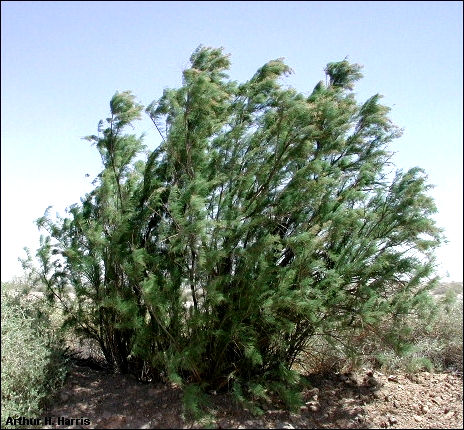

I'm sure you've all heard the saying that "No good deed goes unpunished". Unfortunately, the punishment frequently is to the innocent, not the perpetrator. We've all been punished, in one way or another, by the well meant introduction of salt cedar as an ornamental into North America. A portion of our water problem is directly ascribable to this plant that slurps up enormous amounts of valley water and releases it into the air.
It's not only plants, though. Thousands of well meaning fishermen
have, at the end of the day, dumped bait—such as fish and salamanders—into
the stream or lake. After all, it'd be cruel not to release them. But perhaps not
as cruel as releasing bait animals into places where they don't occur naturally.
Enormous damage to native species is apparent throughout the fishable water bodies of
our desert. Even when releases are of the same species, they often come from distant
places. In many of our Southwestern bodies of water, millennia of adaptation to local
conditions have been diluted or lost, thanks to the good deed.

Contributor: Arthur H. Harris, Laboratory for Environmental Biology, Centennial Museum, University of Texas at El Paso.
Desert Diary is a joint production of the Centennial Museum and KTEP National Public Radio at the University of Texas at El Paso.

Salt Cedar. Photograph by A. H. Harris.